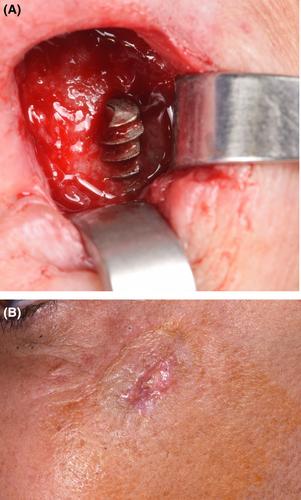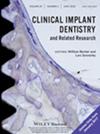Long-term survival and complications of Quad Zygoma Protocol with Anatomy-Guided Approach in severely atrophic maxilla: A retrospective follow-up analysis of up to 17 years
Abstract
Introduction
The objective of the study was to provide long-term clinical outcomes and complications in the severely atrophic edentulous maxillae treated by means of the quad zygoma protocol (QZP) using the Anatomy-Guided Approach (AGA).
Methods
This was a retrospective cohort study of all consecutive patients with severely atrophic edentulous maxilla and insufficient bone height and width in the anterior and posterior regions bilaterally, who underwent rehabilitation with the QZP between May 2006 and December 2021. All patients were followed for at least 1 year. All zygomatic implants (ZIs) were placed by the same surgeon. The primary endpoint of the study was the implant survival rate. Secondary endpoints were implant success rate, prosthesis success rate, complications, and Oral Health-Related Quality of Life using the OHIP-14 questionnaire.
Results
A total of 56 patients (men 16, women 40) with 224 ZIs (Nobel Biocare, n = 204; Straumann, n = 16; Southern Implant, n = 4) placement were included with a mean follow-up period 8.8 ± 3.9 years (range, 1.2–17.0). The survival (success) rate was 97.7%. Five ZIs in four patients failed. The mean time between implant placement and failure was 8.6 years (range, 0.5–13.3). All patients received immediate loading with acrylic prosthesis. The successful rates for the definitive prosthesis were 98.2%. Forty-two patients received posterior cantilever for rehabilitation of fixed definitive prosthesis. Local orofacial inflammation (35.7%) and Sinusitis (12.5%) were the most common complications, occurring at a mean follow-up of 10.0 (range, 4.2–14.9) and 10.3 (range, 4.3–16.2) years, respectively. In 48 patients, the mean score of the OHIP-14 questionnaire was 1.7 ± 2.6 with the follow-up period of 9.0 ± 4.1 years.
Conclusions
The rehabilitation of severely atrophic edentulous maxilla using the QZP has shown a predictable and high survival rate in the long term. The implementation of an immediate loading protocol offers potential benefits in stabilizing ZIs with cross-arch stabilization. Moreover, the use of a posterior cantilever in reconstruction can effectively establish functional occlusion through well-distributed ZIs, eliminating the need for additional implant placement.


 求助内容:
求助内容: 应助结果提醒方式:
应助结果提醒方式:


